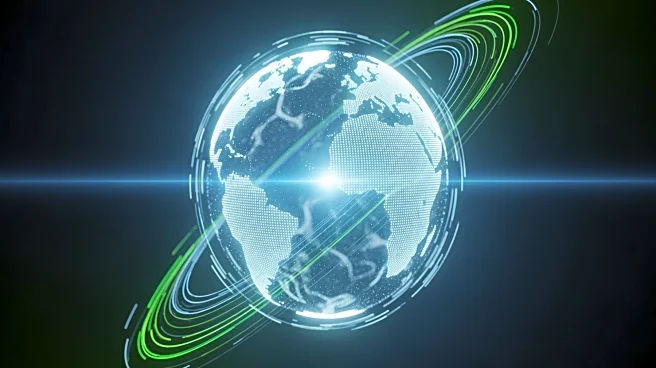What's Happening?
The European Union is working to establish new climate goals before the COP30 summit in Brazil. EU ministers are meeting in Brussels to align their emissions targets, aiming to present a unified stance at the summit. The EU's climate leadership is under
pressure due to domestic and international challenges, including geopolitical tensions and economic constraints. Recent environmental crises in Europe, such as wildfires and floods, have intensified calls for stronger climate action. However, political shifts and economic pressures have led to debates over the EU's environmental policies.
Why It's Important?
The EU's efforts to forge new climate targets are crucial for maintaining its leadership role in global climate policy. As the world's fastest-warming continent, Europe faces significant environmental and economic risks from climate change. The EU's ability to set ambitious climate goals could influence global negotiations and encourage other nations to enhance their commitments. The outcome of these efforts will impact the EU's economic strategies, energy policies, and its relationship with major global players like the United States and China.
What's Next?
The COP30 summit, scheduled for November 10-21 in Brazil, will be a pivotal moment for the EU to demonstrate its climate leadership. The EU aims to negotiate stronger climate commitments and address the challenges posed by geopolitical tensions and economic pressures. The summit will also provide a platform for the EU to collaborate with other nations on sustainable energy investments and climate resilience strategies.
Beyond the Headlines
The EU's climate strategy highlights the intersection of environmental policy with economic sovereignty and defense. The bloc's approach to climate action is linked to its broader goals of energy independence and geopolitical stability. The negotiations at COP30 will test the EU's ability to balance these priorities while advancing its climate agenda.















